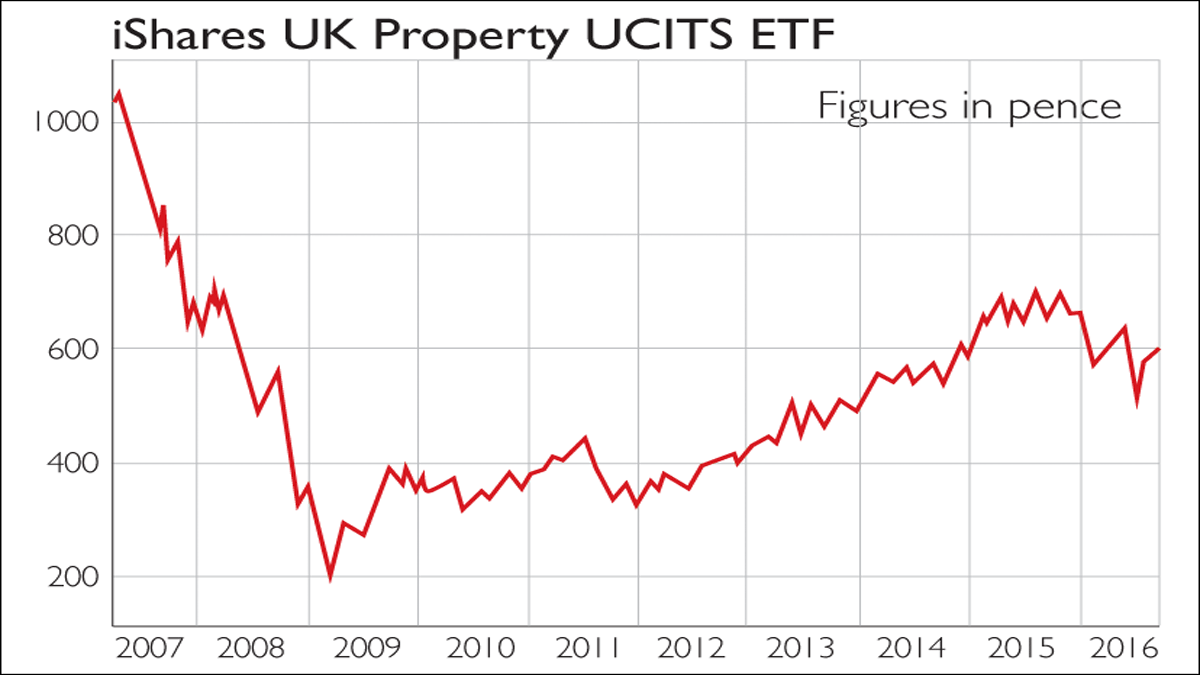An easy way to buy Reits
Sarah Moore tips one great real-estate investment trust (Reit) to buy for those wanting to invest in property.
Get the latest financial news, insights and expert analysis from our award-winning MoneyWeek team, to help you understand what really matters when it comes to your finances.
You are now subscribed
Your newsletter sign-up was successful
Want to add more newsletters?

Twice daily
MoneyWeek
Get the latest financial news, insights and expert analysis from our award-winning MoneyWeek team, to help you understand what really matters when it comes to your finances.

Four times a week
Look After My Bills
Sign up to our free money-saving newsletter, filled with the latest news and expert advice to help you find the best tips and deals for managing your bills. Start saving today!

The suspension of trading in many open-ended property funds in the aftermath of the EU referendum result was a stark demonstration of the problems of using this type of fund for real-estate investments. The illiquid nature of property means that if a lot of investors want to withdraw their money in hurry, the fund won't be able to raise cash quickly enough to meet their redemption requests, so the fund either needs to close or impose a heavy withdrawal penalty.
That's why MoneyWeek prefers listed funds for real-estate investment: because these are traded on the stock exchange, you can buy or sell whenever you choose. You may not get a good price if you want to sell during a panic, but you still have the option to do so.
Most listed UK property funds are structured as real-estate investment trusts (Reits). A Reit is a company that owns and often operates income-producing real estate, such as office buildings or shopping centres. Reits are required to pay out at least 90% of their income to shareholders, hence their popularity with income-seeking investors. They enjoy a special tax status that means they pay no corporation tax on qualifying rental income and capital gains.
MoneyWeek
Subscribe to MoneyWeek today and get your first six magazine issues absolutely FREE

Sign up to Money Morning
Don't miss the latest investment and personal finances news, market analysis, plus money-saving tips with our free twice-daily newsletter
Don't miss the latest investment and personal finances news, market analysis, plus money-saving tips with our free twice-daily newsletter
Reits pay dividends in the form of a "property income distribution (PID)", which is paid after deduction of withholding tax at a rate of 20%. This tax can be avoided if the Reit is held within an individual savings account (Isa) or a self-invested personal pension (Sipp), when your stockbroker should either pay the PID gross of tax or reclaim it subsequently.
UK property is certainly not exceptionally cheap at present, but the FTSE EPRA/Nareit UK index of Reits trades on a yield of 3.35%, in line with its ten-year average. You can buy individual Reits, which can allow you to pick specific sectors of the commercial property market in which to invest, but you can also invest in a basket of UK Reits through the iShares UK Property exchange-traded fund (LSE: IUKP see chart above), which tracks the FTSE EPRA/Nareit UK index.
This ETF is quite concentrated in a small number of Reits the two largest investments, Land Securities and British Land together account for about 30% of its holdings. And the underlying holdings are biased towards London commercial property. However, it offers a simple way to invest in this asset class.
Get the latest financial news, insights and expert analysis from our award-winning MoneyWeek team, to help you understand what really matters when it comes to your finances.
Sarah was MoneyWeek's investment editor. She graduated from the University of Southampton with a BA in English and History, before going on to complete a graduate diploma in law at the College of Law in Guildford. She joined MoneyWeek in 2014 and writes on funds, personal finance, pensions and property.
-
 Should you buy an active ETF?
Should you buy an active ETF?ETFs are often mischaracterised as passive products, but they can be a convenient way to add active management to your portfolio
-
 Power up your pension before 5 April – easy ways to save before the tax year end
Power up your pension before 5 April – easy ways to save before the tax year endWith the end of the tax year looming, pension savers currently have a window to review and maximise what’s going into their retirement funds – we look at how
-
 No peace dividend in Trump's Ukraine plan
No peace dividend in Trump's Ukraine planOpinion An end to fighting in Ukraine will hurt defence shares in the short term, but the boom is likely to continue given US isolationism, says Matthew Lynn
-
 Bitcoin 'has become the reserve asset of the internet'
Bitcoin 'has become the reserve asset of the internet'Opinion The cryptocurrency has established itself as the electronic version of gold, says ByteTree’s Charlie Morris
-
 It’s fallen hard – but is now the time to buy Scottish Mortgage Investment Trust?
It’s fallen hard – but is now the time to buy Scottish Mortgage Investment Trust?Tips Shares in the Scottish Mortgage Investment Trust have plunged 45% since the beginning of 2022. We take a look at the trust's performance and discuss what's next for the business.
-
 Is it OK to buy Scottish Mortgage investment trust again?
Is it OK to buy Scottish Mortgage investment trust again?Tips Scottish Mortgage investment was hit hard by the tech-stock crash, and it is still being buffeted by headwinds. Should new investors wait for those to ease before buying in?
-
 Scottish Mortgage Investment Trust update: discount to net asset value narrows
Scottish Mortgage Investment Trust update: discount to net asset value narrowsNews Scottish Mortgage Investment Trust's is still trading at a discount relative to its net asset value – but the discount is narrowing, says Saloni Sardana.
-
 Carbon emissions trading: how to profit from the price of pollution
Carbon emissions trading: how to profit from the price of pollutionTips Carbon-emission allowances are still an esoteric market, but one that looks set to grow. This new fund could help you cash in.
-
 Bank on financial stocks with this investment trust
Bank on financial stocks with this investment trustTips Banks, though not British banks, look set for a strong rebound, making this investment trust worth researching.
-
What's behind the boardroom barney at Pollen Street investment trust?
News A dispute between the manager and the board has broken out at Pollen Street Secured Lending, an online-lending investment trust.